Features
A Nest of Vipers

The usual way to describe something like what passes for the parliament in the pearl would be a nest of vipers. Vicious, small-brained, reptiles attacking everything in sight and concentrating only on their survival and propagation of their species. Judging by recent comments by an eternally unashamed former leader of the Opposition and now “chit” MP, it seems that even this person’s standards have been violated. I beg to differ. I would describe the present house of representatives as a bed of earthworms. Feeding off the rotting compost that is what remains of their country. Totally blind and unable to see a way out for the country and not having the thinking power to even venture into any area except their own survival. They are crawling around in this compost heap and not even their excreta (read as words that emanate from their mouths) serve any purpose, unlike the humble earthworm. In fact, even this description may be taken as an insult to the earthworm! The present parliament serves only as a source of cheap entertainment for those who bother to follow its episodes and treat it as something to publish in the reams of newsprint that is wasted on it.
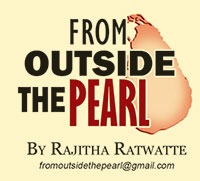 The real nest of vipers seems to be all those billionaires and millionaires who have been hiding their wealth and spending it on giving themselves and their families a great time at the expense of the majority of the populace who slave for them. Now, this is not the first time such antics have hit the headlines. It will also not be the last. A furore of sorts is created, and it quickly dies down to nothing because it is money that creates power and power is what runs the world. I seem to recall that a certain Thirukumar was exposed last time in the Panama Papers as well as this time in Pandora Papers. Absolutely nothing was done last time but this time since the need for sacrificial lambs may be a little more urgent maybe, just maybe another retired judge will be commissioned with the responsibility of conducting an inquiry that has a predetermined verdict. Meanwhile, others who bear such names continue swathed in sheep’s clothing while harbouring the ideologies of vipers and even some other mammalian predators with stripes.
The real nest of vipers seems to be all those billionaires and millionaires who have been hiding their wealth and spending it on giving themselves and their families a great time at the expense of the majority of the populace who slave for them. Now, this is not the first time such antics have hit the headlines. It will also not be the last. A furore of sorts is created, and it quickly dies down to nothing because it is money that creates power and power is what runs the world. I seem to recall that a certain Thirukumar was exposed last time in the Panama Papers as well as this time in Pandora Papers. Absolutely nothing was done last time but this time since the need for sacrificial lambs may be a little more urgent maybe, just maybe another retired judge will be commissioned with the responsibility of conducting an inquiry that has a predetermined verdict. Meanwhile, others who bear such names continue swathed in sheep’s clothing while harbouring the ideologies of vipers and even some other mammalian predators with stripes.
You may observe, dear readers, that this week’s missive bears many innuendoes. Not my usual style but in these days of increased intimidation of the fourth estate, innuendoes may be a way of sparing my editor the charms of the 4th floor and also getting something of what I have to say published.
What of the millionaires and billionaires most of them in mere rupee terms but some actually in hard currency terms, who are squirming around in the great compost heap? How to deal with them was told to me over 40 years ago by the father of a great friend of mine. That gentleman a well-established businessman (who paid his taxes) and a very keen golfer once told me (he may recognise himself or his son may) “All the tax department has to do is raid the huge mansions that these people live in and ask them how they paid for them”. Another even simpler way would be to stop the multimillion-rupee limousines they go about in and ask for proof of legitimate income that was used to pay for them. There is no need for tax returns and the “disappearing” tax files that plague such investigations. Simply look at the house from outside (and the cars parked in the driveway) and invite the owner to prove his credentials. Is that really so hard to do? Maybe in a truly democratic country with a strong human rights base but in the Pearl of today, no way. It is the will that is lacking, not the way.Moving onto cricket, the only sport that has brought us world acclaim (except for a couple of sprint silver medals in the Olympics over the ages) and the picture of one of our best cricketers with his shirt off that adorned the sports page of The Island. Now, I wonder if this picture was published just to show this person’s atrophied muscles and bulging belly or as a sarcastic reminder to all fans. (The latter I think, judging by what little I know of the possible perpetrator of the publication). Is this the level of body conditioning and fitness that is expected of our prime professional athletes? I know that some of our superstars of the past had rotund figures but that was not in the days of professionalism when players are paid millions and have nothing to do but play cricket. What’s more those rotund players have records that today’s “stars” can never match and they certainly didn’t get injured as often.
Back to Aotearoa – New Zealand, where we poor denizens of the largest city Auckland, have endured six weeks of the most stringent lockdown conditions in a two ponged attempt by the Government to get as many people vaccinated as possible and reduce case numbers while doing that. The case numbers refuse to go below an average of about 20 new cases a day. The vaccination statistics are interesting. The Asian (this includes South Asian and Chinese) population has a 98% vaccination rate. The Maoris and Pacific Islanders lag far behind with only around 60%. I did not see any statistics for the “Pakeha” (white population) but I presume it is high. Another interesting statistic is that the infection rate among members of motorcycle gangs is one of the highest. Probably an indicator of their total disregard for any and all lockdown rules. It is the Maori first and then the Pacific Islanders’ who claim the right to run this country. The former say they came first, and latter say NZ is in their backyard (the Pacific Ocean). Can you imagine what would have happened to this country if it was governed by these “indigenous” people? A nest of earthworms springs to mind. I can use less innuendo here as no one in this country of a mere five million people reads anything written by this scribe. Although the audience covered by the newspaper, I write to (The Island) covers a population of over five times that number it seems that no one without a Pakeha name can qualify to be published in the hallowed tomes of Aotearoa. Some bitterness, a little self-pity and frustration you may say, true but alas the just desserts of those living as second-class citizens in other countries due to their own country being ruled by mostly earthworms and a few vipers.
Features
How a Feminist Foreign Policy could lay the basis for a more peaceful world
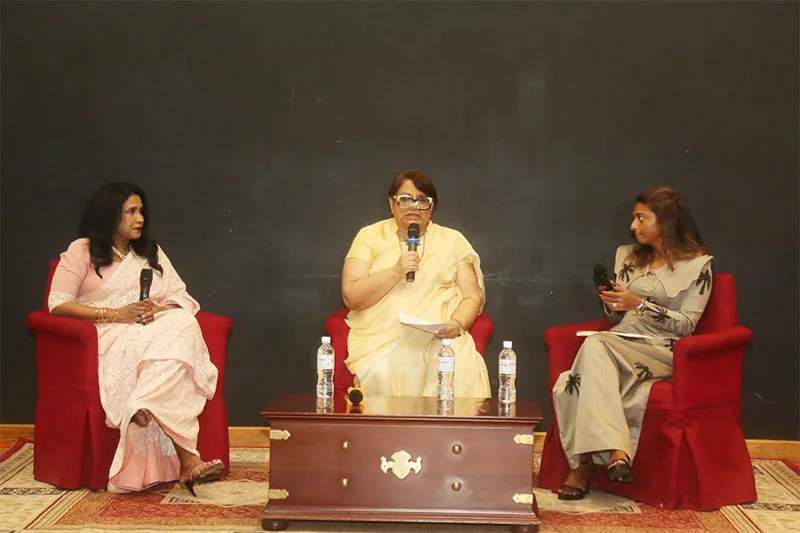
 Looking at foreign policy questions from a feminist viewpoint may strike many in even the world of democracy as quite a new approach to studying external policy issues but this perspective has been around for quite some time and it would be in the interest of states and publics to take profound cognizance of it. This is in view of the implications of the perspective for international peace and stability.
Looking at foreign policy questions from a feminist viewpoint may strike many in even the world of democracy as quite a new approach to studying external policy issues but this perspective has been around for quite some time and it would be in the interest of states and publics to take profound cognizance of it. This is in view of the implications of the perspective for international peace and stability.
Given this backdrop, it was in the fitness of things for the Bandaranaike Centre for International Studies (BCIS) Colombo, a major pioneer in the teaching and researching of International Relations in Sri Lanka, to set off special time to introduce and discuss Feminist Foreign Policy (FFP) recently. The relevant symposium was the final one in a series of forums of importance to foreign and domestic policy issues the BCIS conducted in the course of November this year to celebrate the 50th anniversary of its founding.
Titled ‘Leadership for Peace and Feminist Foreign Policy’, the forum was held on December 9th at the BMICH’s ‘Mihilaka Madura’ under the aegis of the BCIS, headed by the latter’s Executive Director Priyanthi Fernando. Prominent among the members of the audience at the symposium was the Chairperson of the BCIS, former President Chandrika Bandaranaike Kumaratunga.
The panelists at the forum were Prof. Rangita de Silva de Alwis, Associate Dean of International Affairs, University of Pennsylvania Law School, USA and an Expert Member on the CEDAW and Eva Abdullah, Chairperson, Maldives Policy Think Tank and a former Deputy Speaker of the People’s Majlis of the Maldives. The symposium was moderated by Dr. Radhika Coomaraswamy, former UN Under-Secretary General and Special Representative of the Secretary General on Children and Armed Conflict (2006-2012).
Prof. Rangita de Silva, among other things, pointed to the importance of re-imagining FFP and making it increasingly relevant in the formulation of a country’s foreign policy. She said that going forward, foreign policy will need to be increasingly based on a feminist perspective and there are some major countries of the South and North that have already given their external policies this orientation. It was pointed out that by 2025, France, for example, would be taking this policy direction; that is, the best interests of France’s women would be taken into consideration in the formulation and implementation of foreign policy.
Chile, the same speaker pointed out, a major country of the South, is in the forefront of integrating or merging its domestic and foreign policies with a view to prioritizing the legitimate interests of women in the crafting of its external policy.
Eva Abdullah pointed to the crucial contribution women make to a country’s economy. Women in the Maldives, she said, work 19 hours a day. She cogently elaborated that economic instability is a chief causative factor in the disruption of peace and stability in a country, in view of its subtle capability to undermine a country’s material wellbeing. The latter, in turn, causes social disaffection and unrest. But, generally, the factors seen as undermining a country’s peace are physical conflict and war; that is, overt violence.
However, it is important to come to grips with the less visible or more subtle destroyer of peace, which is economic instability. This form of instability, it was pointed out, has grave long term consequences. For instance, a country’s economic ruin is virtually inherited by every new born infant, since a country in debt is obliged to repay such loans and it falls to future generations to do so.
Abdullah went on to elaborate that economic austerity measures undertaken by a country in debt, for example, while disruptive of peace, exert a deleterious impact on particularly women and other vulnerable groups. After all, the contribution of women to the GDP of a country is inestimable. This is all the reason why women’s issues need to be brought to the forefront of foreign policymaking.
In other words, foreign policy, Abdullah pointed out, is essentially all about the promotion of human rights. Since such rights are insidiously undermined during times of economic austerity; debt issues, which come to the fore during economic crises in particularly the South, cannot be viewed in isolation from women’s issues and external policy.
Thus, the forum raised issues of crucial importance to foreign policy formulation which countries of the South in particular need to take into account very seriously, going forward. At the end of the symposium a Q&A followed where many an issue of relevance was taken up for discussion.
It ought to be clear to the unbiased observer and commentator that a feminist perspective in foreign policy is of crucial significance to the process referred to as democratic development. The latter signifies growth in tandem with redistributive justice. It goes without saying that foreign and domestic policies that do not help in furthering these aims serve no useful purpose. Thus, a feminist foreign policy and its underlying principles cannot be glossed over or ignored in the process of external policy formulation and implementation.
Generally, a woman’s contribution to a country’s GNP and overall wellbeing goes largely undocumented and unappreciated. For example, women work selflessly and silently in their homestead, but no official price tag is attached to such labour which is instrumental in ‘keeping the home fires burning’. Accordingly, the panelists’ observation that foreign policy in the real and feminist sense is essentially all about the promotion of human rights amounts to an insight of great worth.
Features
A star in the making…

 Most of us are familiar with the name Don Sherman, from Melbourne, Australia, who is also known as the ‘Singing Chef,’ but I doubt Sri Lankans here are aware that he also has a pretty daughter – Emma Shanaya.
Most of us are familiar with the name Don Sherman, from Melbourne, Australia, who is also known as the ‘Singing Chef,’ but I doubt Sri Lankans here are aware that he also has a pretty daughter – Emma Shanaya.
What’s extra special about Emma is that she is following in her father’s footsteps – not as a Chef, but as a singer!
Reports coming my way indicate that Emma, born in Sri Lanka, is an emerging singer-songwriter from Melbourne…known for her soulful voice and heartfelt lyrics.
Growing up, Emma was exposed to the world of music through her father, Don Sherman, who is still a very popular personality, in Melbourne, while her brother Shenan is a pianist in a band.
At 14, they say, Emma discovered her passion for music and has been honing her craft ever since…performing at special events, parties, etc.
This extremely talented artiste released her debut original, on December 1st, 2024 – “You Made Me Feel,” a song she wrote and performed herself, with mixing and mastering by Markia Productions.
The accompanying music video, produced by Synapse Productions, is now live on YouTube and music lovers could check it out – Emma Shanaya. Her other socials are:
Instagram: @emmashanaya
Facebook: Emma Shanaya
TikTok: Emma Shanaya
Emma trains at the renowned Andrea Marr Music School, in Melbourne, and Andrea’s coaching has been appreciated by many who consider her teaching method as a boom to their career as performers.
In fact, another singer of repute in Melbourne, Derrick Junkeer, who was in Colombo last December and performed at the All-4-One concert, was very impressed with Emma’s singing and says she is poised for a promising career in the music industry.
Yes, Emma Shanaya is certainly on the right track to hit the big time in the music industry and says she has plans to create many more originals and also integrate her Sri Lankan culture into her music.
“I hope to write and make more music and be a performing artiste in Melbourne and Sri Lanka. I want to include my Sri Lankan culture and language into my music.”
In addition to singing, she loves dancing and acting and has done a few acting and model projects as well.
Emma graduated from Deakin University, in September 2024, with a Bachelor of Business and Bachelor of Arts (majoring in drama) and is currently working full time as a kindergarten teacher in a Montessori in Melbourne.
The star in the making is in Sri Lanka, at the moment, on holiday, and says she loves the scene here.
“Sri Lanka is great! Has become a lot more pricier but the tropical lifestyle and vibes are unmatched.”
Emma will be flying back to Melbourne on Christmas Day and will be joining her parents for some celebrations later during the day.
“I take this opportunity to wish The Island readers a Very Happy and a Peaceful Christmas and I also wish all of you a Wonderful New Year, filled with love and laughter.”
Features
Face Packs to Beat the Heat
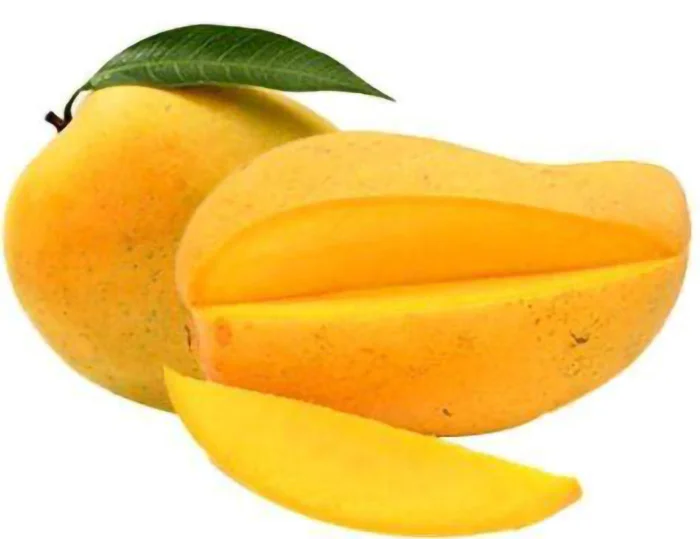
 I’m glad The Island readers liked my Beauty Tips last week – Beat the Heat – and requested for a few more Face Packs to Beat the Heat. Okay, here are a few more very cool homemade face packs:
I’m glad The Island readers liked my Beauty Tips last week – Beat the Heat – and requested for a few more Face Packs to Beat the Heat. Okay, here are a few more very cool homemade face packs:
* Mango Face Pack: In a bowl, add one tablespoon of fresh mango pulp. To this add one tablespoon of cold cream and one tablespoon of cold milk. Whip the ingredients well to form a thick paste. When done apply this paste on the skin, allow it to dry and then rinse it off.
* Watermelon Face Pack: In a bowl, add half a cup of watermelon pulp. To this add 01 tablespoon of curd. Combine the ingredients and apply the pack on your face. When the pack turns dry, rinse it off with cold water.
* Curd Face Pack: When curd is used on the skin, it will help to improve the skin tone. Apply cold curd on your face and neck twice in a week…when the heat is on. The curd will open your pores and help you to get a natural glow in no time.
* Cucumber Face Pack: Cucumber is the best vegetable that you can use on the skin in the heat. Make a thick juice out of one cucumber, and 03 tablespoons of sugar with 01 teaspoon of curd. When this pack is ready, massage it on to the skin and let it dry. After 15 minutes, peel the face pack from the skin and then rinse with cold milk.
* Pineapple Face Pack: Grind the flesh of one pineapple to a thick juice. Rinse your face with this juice and let it dry. After 10 minutes, rinse your face with rose water and wipe dry. Wait 15 minutes and then wash your face with cold water. This face pack will make you feel refreshed.
-

 Opinion3 days ago
Opinion3 days agoDegree is not a title!
-
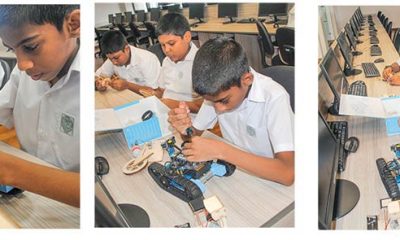
 Features6 days ago
Features6 days agoEmpowering the next generation: St. Benedict’s College brings STEM education to life
-
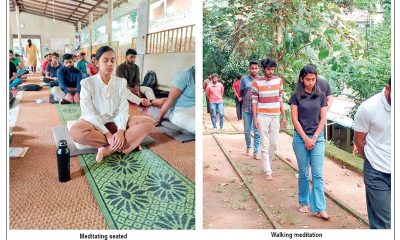
 Features4 days ago
Features4 days agoSpiritual Awakening of a Village
-

 News5 days ago
News5 days agoOver 300,000 Sri Lankans leave for overseas jobs this year
-
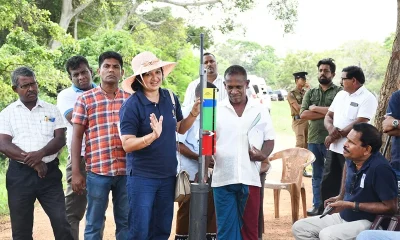
 News2 days ago
News2 days agoInnovative water management techniques revolutionising paddy cultivation in Lanka
-

 Latest News5 days ago
Latest News5 days agoIndia’s Gukesh beats China’s Ding to become youngest chess world champion
-
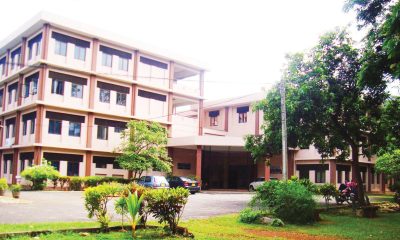
 Features4 days ago
Features4 days agoRevisiting the role of education in shaping shared futures
-

 Features4 days ago
Features4 days agoThe Silence of the Speaker and other matters











